ITRC PFAS Beyond the Basics: Sampling, Analysis, Surface Water, & Air Occurrence Training
Sponsored by: Interstate Technology and Regulatory Council
This ITRC training course will build upon PFAS sampling and analysis information presented in the PFAS 101 CLU-IN training. The ITRC PFAS Beyond the Basics class provides in-depth information on preparing for and implementing sampling events. Some detailed information and case studies are presented for sampling surface water and PFAS-containing foam that can form and aggregate at the surface water-air interface. The training includes information about PFAS analysis and discusses alternative qualitative analytical techniques. The occurrence of PFAS in air information from the literature for outdoor air, indoor air, settled dust and precipitation is discussed.
Resources and further details for the topics included in this training are in the ITRC Guidance Document (PFAS-1) in Sections 6, 11, 15, 16 and 17.1 along with referenced tables.
Learning Objectives:
- Key elements that make sampling for PFAS different from other sampling events.
- Best practices for preparing and conducting a PFAS sampling event.
- Matrix-specific PFAS sampling guidance.
- Surface water/foam sampling challenges and case study.
- Options for compound-specific PFAS analysis and key differences of available methods.
- Understanding PFAS analytical challenges (suspended solids, branched/linear isomers, bile salt interference).
- Qualitative analytical techniques and when they can be useful.
- Occurrence of PFAS in air.
 Elizabeth Denly (edenly@trccompanies.com)
Elizabeth Denly (edenly@trccompanies.com)
Elizabeth Denly is based out of Lowell, Massachusetts and is a Technical Director at TRC and the Program Director for TRC's PFAS Group. She is a chemist with 30 years of consulting experience encompassing field and laboratory analyses and audits, quality assurance/quality control, data validation, and consulting for regulatory agencies. Elizabeth is currently focusing on PFAS, specifically the nomenclature, chemistry, sampling procedures, QA/QC, and laboratory analytical methodologies, and has a significant role in educating clients, attorneys, and regulators about PFAS. She has been a leader in ITRC's PFAS Team and received the ITRC's Industry Member of the Year Award in 2017 for her work on this team. Elizabeth earned a bachelor's degree in chemistry from the University of New Hampshire in 1987 and is also a certified manager of quality/organizational excellence (CMQ/OE) by the American Society of Quality.
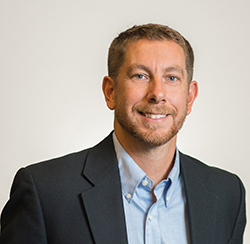 Jamie Fox, SGS (jamie.fox@sgs.com)
Jamie Fox, SGS (jamie.fox@sgs.com)
Jamie Fox is a career analytical chemist with over 25 years of experience supporting environmental laboratory services as an analyst, data validator, laboratory auditor, project manager, laboratory director, and business development. His expertise lies in the ultra-trace analysis of persistent organic pollutants using high resolution GC-MS and LC-MS/MS. He has a B.S. in Biochemistry from the University of Missouri-Columbia.
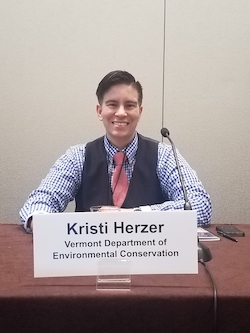 Kristi Herzer, Vermont Department of Environmental Conservation (kristi.herzer@vermont.gov)
Kristi Herzer, Vermont Department of Environmental Conservation (kristi.herzer@vermont.gov)
Kristi Herzer is an Environmental Analyst and Technical Program Lead for the State of Vermont's Department of Environmental Conservation. Kristi is a project manager in the Brownfields Program and the Sites Management Section and promotes the Vermont Brownfields Reuse and Environmental Liability Limitation Act (BRELLA) program. Kristi is the Division representative on VTDEC's Environmental Justice Team, an active member in a cross-agency PFAS workgroup, and co-author of multiple internal and external guidance documents for the regulated community. Since 2017, Kristi has served as a member and subgroup leader for the Sampling and Analysis section of ITRC's PFAS team, and most recently also serves as a subgroup leader of the PFAS Training team. Kristi holds a Bachelor of Science in Physics and Biology from Guilford College and a Master's Degree in Environmental Engineering from the University of Vermont.
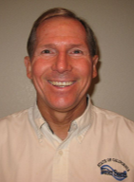 Alex MacDonald, Emeritus (alexmacd836@gmail.com)
Alex MacDonald, Emeritus (alexmacd836@gmail.com)
Alex MacDonald is a former senior engineer in the technical support section of the Cleanup Unit at the Central Valley Regional Water Quality Control Board in Rancho Cordova, California. He worked at the Water Quality Control Board from 1984 - 2021. He primarily worked on cleanup of the Aerojet site in Rancho Cordova, California and on the cleanup at McClellan Air Force Base. Alex also worked on cleanup at underground and above ground storage tanks sites; permitting and inspection of landfill and waste disposal to land sites; regulating application of biosolids sites; regulating underground injection; regulating NPDES sites that include municipal wastewater treatment plants, power plants, industrial facilities, and groundwater treatment facilities; and permitting and inspecting dredging projects. Alex was a member of the Interstate Technical Regulatory Council (ITRCC) Perchlorate team, DNAPL and Fractured Rock Teams. He is currently a member of the ITRC PFAS, Microplastics and Risk Communication Teams. Alex earned a bachelor's degree in Civil/Environmental Engineering from Stanford University in Palo Alto, California in 1977 and a master's degree in Civil/Environmental Engineering from Sacramento State University in Sacramento, California in 1987. He is a registered Professional Engineer in the State of California.
 Chris Zevitas, U.S. DOT (Chris.Zevitas@dot.gov)
Chris Zevitas, U.S. DOT (Chris.Zevitas@dot.gov)
Dr. Zevitas is a nationally-recognized subject matter expert in the environmental and occupational safety and health fields and has authored and led the development of technical reports, guidance documents, tools, and resources, including peer-reviewed publications, national technical and policy frameworks, national research roadmaps, and agendas in response to Congressional mandates, Government-wide, Departmental, and Agency strategies and directives. Dr. Zevitas leads major inter and intra agency initiatives through his participation in expert committees addressing the nation’s top priorities concerning novel pollutants and emerging threats to human health and the environment, including the: Executive Office of the President (EOP) National Science and Technology Council (NSTC) Joint Subcommittee on Environment, Innovation, and Public Health (EIPH) PFAS Strategy Team and Contaminants of Emerging Concern (CEC) Strategy Team; Transportation Research Board (TRB) Standing Committee on Environmental Issues in Aviation (AV030); TRB Aviation Water Resources Subcommittee AV030(2), Subcommittee Chair; Federal Remediation Technology Roundtable (FRTR) Steering Committee; and ITRC PFAS, Tire Anti-Degradants 6PPD, and Vapor Intrusion Teams.
Moderator:
ITRC Training Program (itrc@itrcweb.org)
Webinar Slides and References:
Additional Resources:
Thank you for participating in our webinar. We would like to receive any feedback you might have that would make this service more valuable.
Help & FAQs
- Frequently Asked Questions
- Content Questions?
Call ITRC Training Program at 202-266-4932 or itrc@itrcweb.org - Technical Problems?
Leave us a comment - Cancel Your Registration
- My Participation Records
- CEU Credits and PDHs
Zoom Resources
Before Webinar Day
This seminar will be delivered through Zoom. Participants are encouraged to update to the latest version of the Zoom application for the best experience.
If you are unable to install the Zoom application, most functions will be available if you join just using a modern web browser such as Chrome, Edge or Firefox. We strongly encourage you to run the Zoom Meeting Test prior to attending this webinar. Technical support on the day of the webinar will be very limited and subject to significant delays.
Backup Conference Call
If you cannot participate using online audio, you may join the optional call in line. After checking in for the live event using the instructions listed below, you will see several options to participate. Please click the links in option 4 to follow along by phone and obtain the call in number. If you cannot access the phone number, you may request the call in line from the event moderator in the Q&A or send an email to Jean Balent at balent.jean@epa.gov
Click on "Join Webinar" at the top of this screen, enter your exact first and last name as you registered and enter the number of people attending at your location (including yourself). You should then be taken to the Zoom meeting room. Join with Zoom Application: For those joining with the Zoom application, you may be prompted to sign with a zoom account or join as a guest without signing in.
If joining as a guest, you will be prompted to enter your name and email address. Remember your name, image, video or voice may be visible to others in the live event. When done, click "Join" When it is time for the live event to start, the meeting host will admit you to the live Zoom meeting. Join via web browser (without the Zoom Application): For those joining with a web browser, you may close any pop ups prompting you to download the Zoom app. The next window will allow you to enter your name (first name and last name) and check the box that you are not a robot. Click the blue join button. You may also be asked to provide your email address before joining the room. Remember your name, image, video or voice may be visible to others in the live event. When done, click "Join" When it is time for the live event to start, the meeting host will admit you to the live Zoom meeting. You may need to periodically refresh the browser window to confirm if the host has admitted you. The presenters will control what slide you are viewing. You may submit questions online for the instructors to answer during the webinar by typing in the "Q&A" area. It is not necessary to wait until the question and answer periods to submit questions. At the end of the webinar you will be guided to our feedback form and links to additional resources, including the complete presentation. These links will remain active after the webinar. Provided for your convenience. Importing or accepting the invitation within this iCalendar file is not required, and declining the invitation does not cancel your registration. For additional information on iCalendar, please see our
iCalendar Help It is EPA's policy to make reasonable accommodation to persons with disabilities wishing to participate in the agency's programs and activities, pursuant to the Rehabilitation Act of 1973, 29 U.S.C. 791. Any request for accommodation should be made to at or , preferably one week or more in advance of the seminar, so that EPA will have sufficient time to process the request. EPA would welcome specific recommendations from requestors specifying the nature or type of accommodation needed. EPA welcomes specific recommendations from requestors specifying the nature or type of accommodation needed. Please note that CLU-IN provides both alternate phone call-in options and closed captioning for all webinars, and requests for these specific accommodations are not necessary.
Webinar Day, Checking In
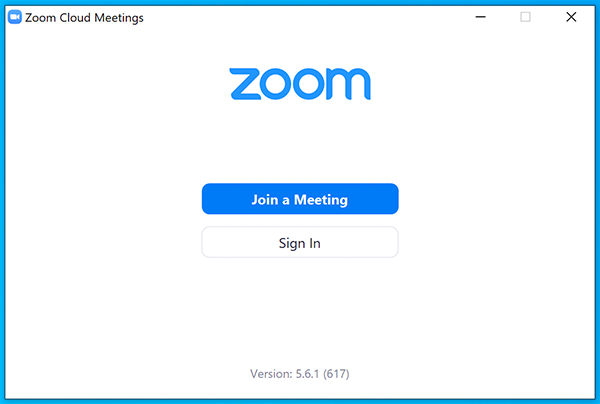
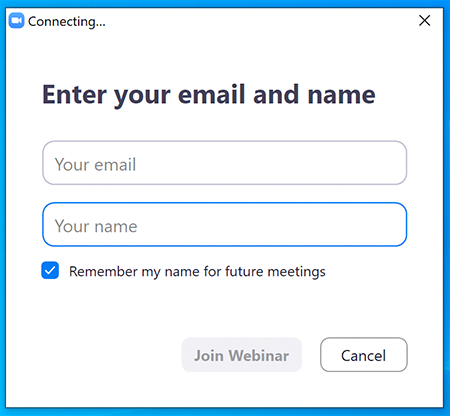
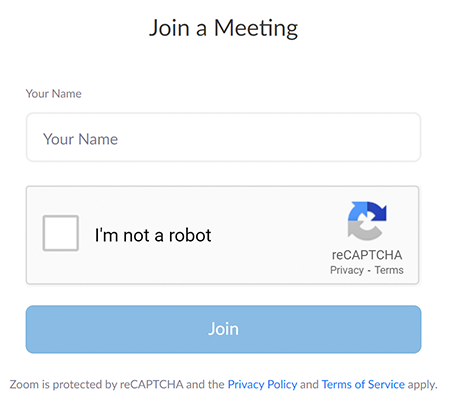
Moving Through Slides
Feedback & Links to Additional Resources
iCalendar File
Rehabilitation Act Notice for Reasonable Accommodation
Rehabilitation Act Notice for Reasonable Accommodation
It is EPA's policy to make reasonable accommodation to persons with disabilities wishing to participate in the agency's programs and activities, pursuant to the Rehabilitation Act of 1973, 29 U.S.C. 791. Any request for accommodation should be made to at or , preferably one week or more in advance of the webinar, so that EPA will have sufficient time to process the request. EPA would welcome specific recommendations from requestors specifying the nature or type of accommodation needed. EPA welcomes specific recommendations from requestors specifying the nature or type of accommodation needed. Please note that CLU-IN provides both alternate phone call-in options and closed captioning for all webinars, and requests for these specific accommodations are not necessary.
Webinar Recording
By participating in this CLU-IN webinar, you automatically agree to authorize recording of audio and visual content presented during this live event and consent to subsequent use of this recording in the public domain by the U.S. Environmental Protection Agency. This recording may include questions, comments and poll responses provided by you during the live event in addition to your name, voice, image or likeness. This recording will be made available after the conclusion of the live event as part of the CLU-IN webinar archives, and will remain available indefinitely. If you do not wish to consent to the recording, please do not join the live event, and contact Jean Balent at 202-566-0832 or balent.jean@epa.gov to discuss your concerns.
Content Disclaimer
This webinar is intended solely to provide information to the public. The views and opinions expressed as part of this webinar do not necessarily state or reflect those of the U.S. Environmental Protection Agency. It is not intended, nor can it be relied upon, to create any rights enforceable by any party in litigation with the United States, or to endorse the use of products or services provided by specific vendors. With respect to this webinar, neither the United States Government nor any of their employees, makes any warranty, express or implied, including the warranties of merchantability and fitness for a particular purpose, or assumes any legal liability or responsibility for the accuracy, completeness, or usefulness of any information, apparatus, product, or process disclosed, or represents that its use would not infringe privately owned rights.

